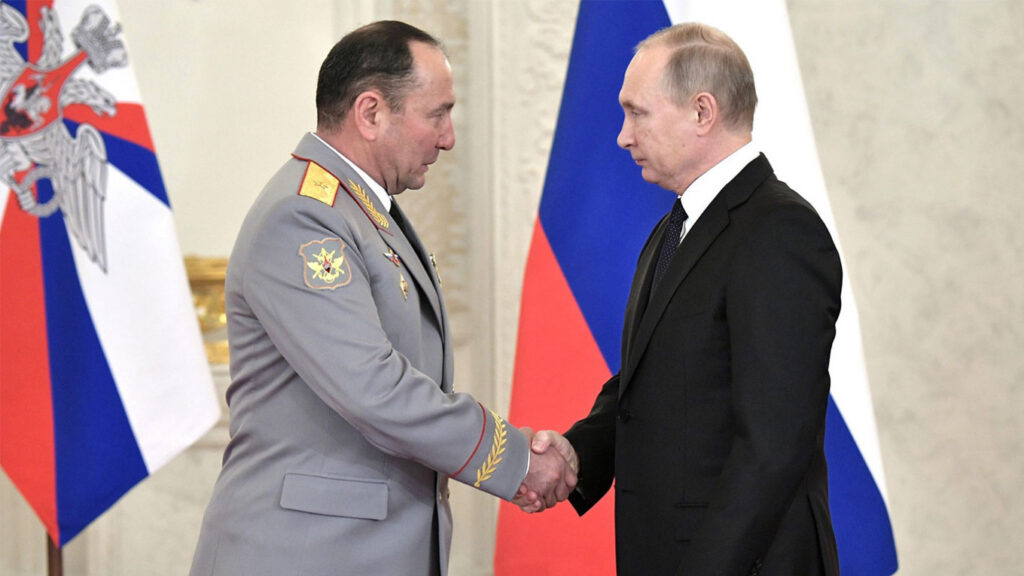
STRATEGIC ASSESSMENT. NATO chief Jens Stoltenberg has said the 30-country bloc faces its biggest crisis since World War II, with Russia, in the wake of its invasion of Ukraine, posing a “direct threat” to the alliance.
Stoltenberg made the comments on Wednesday as leaders of 30 NATO countries met in Madrid, Spain, where they are set to agree on a new strategic framework that will address Russia’s February 24 invasion of Ukraine, as well as the growing military and economic reach of China.
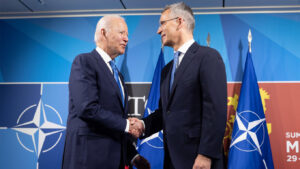
The alliance is also due to launch the largest revamp of its defence and deterrence capabilities since the end of the Cold War, strengthening its forces on its eastern flank and massively ramping up the number of troops it has at high readiness.
Stoltenberg set high expectations, saying the Madrid gathering was set to be “historic and transformative” for the security alliance, which formed in 1949.
“We meet in the midst of the most serious security crisis we have faced since the second world war,” Stoltenberg said. He added leaders of the bloc will “state clearly that Russia poses a direct threat to our security”.
The rhetoric accompanied early security pledges from the United States, with President Joe Biden announcing Washington would boost its force posture in Europe, including establishing a permanent US base in Poland, two more Navy destroyers based in Rota, Spain, and two more F-35 squadrons to the United Kingdom.
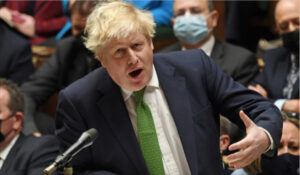
British Prime Minister Boris Johnson, meanwhile, urged countries who do not hit the target alliance’s current target of spending two percent of gross domestic product on defence to “dig deep to restore deterrence and ensure defence in the decade ahead”.
Just nine of the alliance’s members currently meet that goal. The summit opened with one of the bloc’s problems solved, after Turkey agreed on Tuesday to lift its opposition to Sweden and Finland joining NATO. In response to the invasion, the two Nordic nations abandoned their long-held non-aligned status and applied to join NATO as protection against an increasingly aggressive and unpredictable Russia – which shares a long border with Finland.
German Foreign Minister said the arrangement would be mutually beneficial, with the “strong democracies” and “powerful armies” of Sweden and Finland strengthening NATO. She added plans to bolster NATO’s capability did not mean the bloc was seeking a confrontation with Russia.
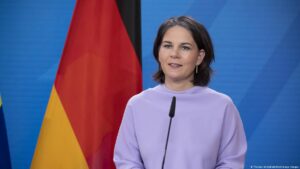
For its part, the Kremlin on Wednesday decried Sweden and Finland’s ascension to the bloc as “destabilising”.
The leaders of Japan, Australia, South Korea and New Zealand were a;sp attending the NATO summit as guests, a reflection of the growing importance of the Indo-Pacific region. Stoltenberg said China was not NATO’s adversary, but posed “challenges to our values, to our interest and to our security”.
The strategic concept is updated around every 10 years to reaffirm “NATO’s values and purpose, and provides a collective assessment of the security environment,” according to the NATO website.
Russia’s invasion of Ukraine has galvanized a coordinated NATO response and reinvigorated the alliance, which French President Emmanuel Macron had called “brain dead” in 2019.
After decades of neutrality, Finland and Sweden are now expected to join the alliance after Turkey removed its objections to the Nordic countries’ membership on Tuesday evening.
“We will make a decision at the summit to invite Sweden and Finland to become members,” Stoltenberg said Wednesday, calling it a “historic decision.”
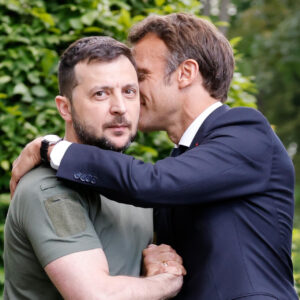
NATO is also expected to carry out its largest increase of defense and deterrence capability since the Cold War. This includes having more combat-ready troops and pre-positioned military equipment stationed in Eastern Europe.
US to increase forces in Europe
US President Joe Biden said Wednesday that NATO is needed more today “than it ever has been,” and that the alliance will be “strengthened in all directions across every domain — land, air and sea.”
The US will bolster its forces in Europe with two more warships stationed in Spain, two additional fighter jet squadrons to the UK and a new army headquarters in Poland, Biden said.
The summit will send out the “unambiguous message” that NATO is strong and united, he added.
The new strategic concept will also include language identifying the growth of China’s military as a long term strategic challenge for NATO.
“I expect that allies will agree that China poses or is a challenge to our values, to our interests, and to our security,” Stoltenberg told reporters Wednesday.
In the current NATO security concept from 2010, China is “not mentioned in a single word,” he added.
“China is not an adversary, but of course we need to take into account the consequences of our security when we see China investing heavily in new modern military capacity.”
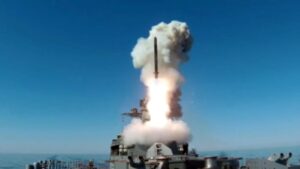
Moscow said Wednesday that the NATO summit in Madrid served as proof the alliance was seeking to contain Russia and that it saw Finland and Sweden’s NATO bids as a “destabilizing” factor.
“The summit in Madrid confirms and consolidates this bloc’s policy of aggressive containment of Russia,” Deputy Foreign Minister Sergei Ryabkov said, Russian news agencies reported.
“We consider the expansion of the North Atlantic alliance to be a purely destabilizing factor in international affairs.”
NATO leaders were set Wednesday to invite Finland and Sweden to join after Turkey dropped objections, as the alliance looked to revamp its defenses at a summit dominated by Moscow’s intervention in Ukraine.
More than four months after Russia sent troops to Ukraine, upending the European security landscape, leaders gather in Madrid for what NATO chief Jens Stoltenberg called a “historic and transformative summit” for the alliance’s future.
Ryabkov said Russia knew what to expect from the summit.
“A new strategic concept will be adopted, where Russia is going to be called a threat to the alliance,” he said. “This has nothing to do with real life. It is the alliance that poses a threat to us.”
NATO should stop looking for “imaginary enemies” in the Asia-Pacific and never be allowed to set up a version of the bloc in the region, China’s envoy to the UN has said.
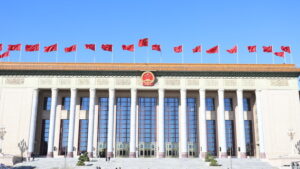
“We firmly oppose certain elements clamoring for NATO’s involvement in the Asia-Pacific, or an Asia-Pacific version of NATO on the back of military alliances,” Zhang Jun said at a UN Security Council meeting on Tuesday.
The diplomat’s statement came after Japan, South Korea, Australia and New Zealand were invited for the first time to attend the annual NATO summit, which opened on Tuesday in Madrid, Spain.
John Kirby, a senior White House security official, said last week that the participation of the four nations was not an attempt to forge “an Asian version of NATO,” but “an indication of the linkage of global security between Europe and the Indo-Pacific.”
Zhang urged NATO “not to use the Ukraine crisis as an excuse to stoke worldwide confrontation” and “not to look for imaginary enemies in the Asia-Pacific.”
“The long-outdated Cold War script must never be reenacted in the Asia-Pacific. The kind of turmoil and conflict that are affecting parts of the world must not be allowed to happen in the Asia-Pacific,” he added.
NATO Secretary General Jens Stoltenberg said this month that the bloc’s Strategic Concept, a key document outlining the assessment of the security environment, would for the first time include the “challenges” posed by Beijing. A revised version of the document will be adopted at the summit.
Individual NATO members, such as the US and Britain, have repeatedly accused China of threatening Taiwan and generally stirring up tensions in Asia. Beijing, meanwhile, accused the West of meddling in its domestic affairs and of military escalation in the region (Red/many sources).





